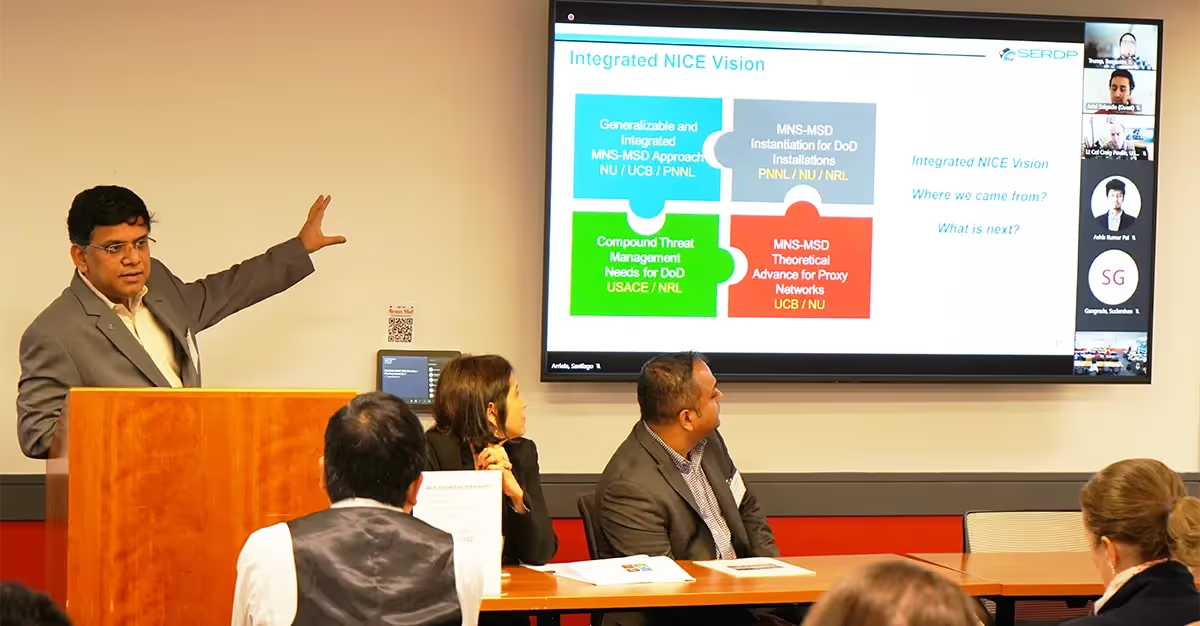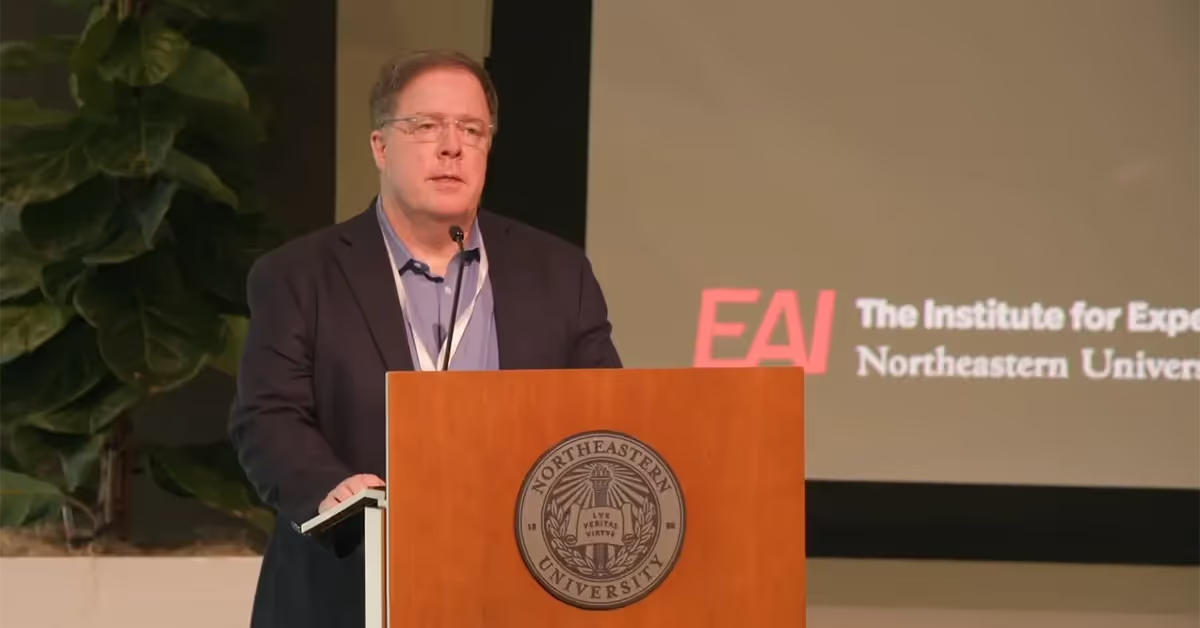Northeastern Researchers Lead Department of Defense Collaboration to Build New Climate Resilience Models

Experts from the Department of Defense, industry and academia convened at Northeastern University’s Boston campus April 25-26 for two days of research presentations and collaboration focused on DoD infrastructure resilience as part of the Networked Infrastructure under Compound Extremes (NICE) workshop.
Northeastern University Distinguished Professor and Director of AI for Climate and Sustainability, (AI4CaS) Auroop Ganguly is lead PI on the project, which is funded by DoD’s Strategic Environmental Research and Development Program (SERDP). The project seeks to prepare DoD infrastructure to adapt and recover from changing climate conditions, extreme weather, and other threats. The work will also lead to new frameworks and models for improving the science of resilience.
The gathering gave the DoD an update on the NICE project, with presentations from research collaborators including the University of California at Berkeley, the Department of Energy's Pacific Northwest National Labs, the US Army Corps of Engineers, the US Naval Research Lab, Northeastern University and more.
Two Days of Resilience Research and Collaboration
Ganguly’s team kicked off the two-day workshop with presentations on the state of the NICE project. The team discussed work using a combination of network science, system dynamics, and other tools to model DoD facilities’ readiness for disasters.
“What we are looking at is resilience of installations, facilities, supply chains, transit networks, with a particular focus on DoD installations, in a way that considers the systems and components that comprise the installation itself, but also the surrounding and supportive ecosystem of the installation,” Ganguly explained.
The second day explored emerging opportunities and challenges in climate adaptation, cyber-threat deterrence, energy renewables, and knowledge-guided AI systems.
Institute for Experiential AI Executive Director Usama Fayyad discussed the integration of generative AI with AI and machine learning, and Director of AI Faculty Jennifer Dy shared insights into how machine learning can advance our understanding of climate science and biology.
"Climate change is an important problem of our times,” Dy said. “Machine learning and AI can help improve climate projections at local scales to aid decision-makers and planners to prepare for projected impacts. Climate adaptation is a very interesting problem with very challenging data — but challenges enable innovation and inspire us to push the state-of-the-art in ML and AI."
Ganguly said the NICE work epitomizes the mission of the Institute for Experiential AI.
“The institute is focused on getting real,” Ganguly said. “These solutions apply to extreme scenarios we are seeing more and more often, and the intersection of extremes — from weather, climate, pandemics, policy shocks, warfare, etc. What do those threats mean for DoD installations? This is as real as it can get.”
The research effort is part of the Institute for Experiential AI’s AI4CaS focus area, which applies AI to the world’s most pressing challenges to develop planet-saving innovations. AI4CaS partners with organizations to use AI for things like making climate predictions, executing sustainability projects, ensuring food, water, and energy security, and more.
Learn more about the AI4CaS team’s work here.




